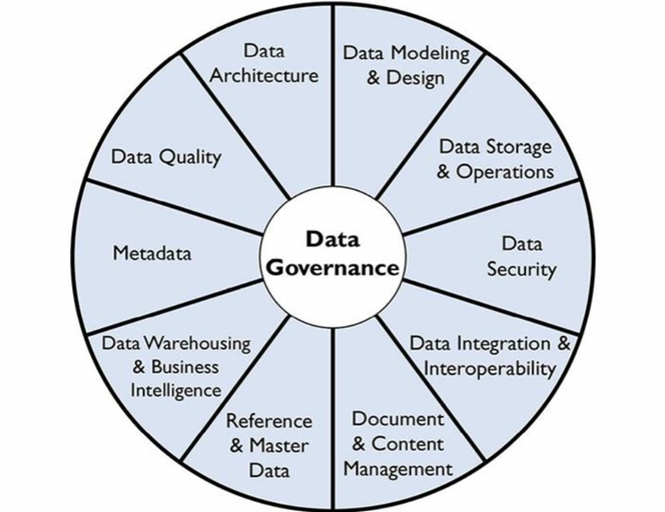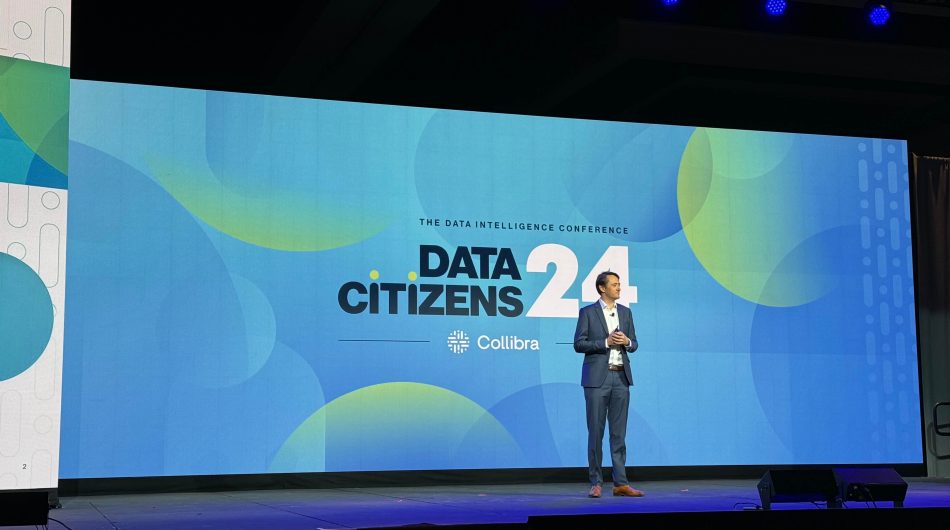
get in touch
From Struggles to Success: Discovering Essential Lessons in Project Work
Have you ever found yourself on a project in unfamiliar territory, feeling like a fish out of water? It is a challenge we all face at some point in our careers, whether you are a consultant, a project manager, or a team member. But these situations can be transformative opportunities for personal and professional growth.
This is the story of a team’s journey from novices to practitioners. We were a newly formed team that emerged from the Data Analytics department, with the goal of becoming experts in Data Governance. Our team brought together diverse backgrounds in IT, ranging from junior members with fresh perspectives to seasoned seniors with a wealth of experience. Together, we embarked on a journey to master the intricacies of data governance.
Introduction
The team’s mission was to be ready for a new Data Governance project later that year. Except for the team lead, who was also our mentor, data governance was entirely unexplored territory for the rest of the team. It marked the beginning of a significant learning journey about data governance, as well as about the software that would be used for its implementation.
Understanding Data Governance
But first, let us clarify what data governance is. It is a set of rules and standards that enable companies to manage the lifecycle, quality, and security of their data. The scope of data governance is broad, ranging from labelling sensitive data for security compliance to implementing formal procedures for assessing risks and regulatory compliance in data collecting and processing.
To illustrate the breadth of areas covered by data governance, the Data Management Association (DAMA) International created the Data Management Framework or DAMA Wheel. It includes 11 knowledge areas and places data governance at the centre, highlighting its fundamental role in all data management activities.

Picture: DAMA Wheel (DAMA Data Management Knowledge System Guide 2nd Edition
Starting the Data Governance Journey: Building a Foundation through Knowledge Accumulation
Every project represents a new beginning, a departure from our comfort zones. Before anything else, we needed to familiarise ourselves with the terminology, expressions, and context of data governance.
This presented our first challenge, as some terms were entirely new, while others, although familiar, took on different meanings in this context.
To overcome this, we accumulated a wealth of materials, books, and courses. We strategically set up a shared folder—a centralised hub for exchanging files, links, and educational materials. This tech-driven solution streamlined our knowledge-sharing process and laid the foundation for effective collaboration in understanding data governance.
As part of our efforts, we also created a dedicated channel on Slack for sharing ideas and answering questions. This platform allowed us to collaborate seamlessly, fostering open communication and efficient exchange of thoughts within the team.
One step forward, two steps back: The Dance of Progress
We started by diving into the “Data Governance bible” – the DAMA book, which provided best practices, guidelines, and a common language for data management professionals. Simultaneously, we got to know the tool that would be our companion on this journey – Collibra, the platform for implementing data governance in companies.
The volume of material was significant, so we decided to break it down into smaller chunks, organising workshops to discuss what we had learned thus far. This approach proved beneficial, as it made complex concepts more manageable, and regular workshops and discussions with our mentor ensured consistent progress.
One of the major challenges was a shift in our perspective on data. After our first readings, we found ourselves deep in discussions about terminology and concepts. While some of the terminology was familiar, something seemed amiss in the bigger picture. This led to lively discussions within the team, challenging the knowledge we had accumulated so far.
As we advanced through each stage, we started to comprehend the concept of dealing with ‘metadata’—essentially, data about data. This wasn’t just about gathering information on specific entities like ‘The Customer Order.’ Instead, it revolved around grasping the details necessary for effective data governance. This includes understanding how data related to ‘The Customer Order’ enters our system, its storage location, reliability, and access permissions. Once we adopted this new perspective, everything began to make sense and became more straightforward to grasp in the realm of data governance.
The Power of Teamwork and Mentorship
Teamwork was essential because each team member brought different knowledge and experiences to the table, contributing in their unique ways. Despite stepping into new territory, each of us had professional and personal experiences that proved valuable. We conducted weekly workshops to delve into uncertainties and open questions.
These sessions provided a platform for sharing and comparing perspectives with our colleagues, fostering collaborative problem-solving. The most crucial aspect of our journey was our mentor, who guided us, provided directions, and readily answered our questions.
At times, our team experienced disagreements and moments of competition, with occasional delays in sharing information. One instance was when varying knowledge levels led to differing opinions on the best next steps.
Additionally, there was friendly competition among members to be the first to achieve certifications. In some cases, valuable information was acquired by a team member but not immediately shared with the rest of the team. We recognised that effective communication was key and worked towards keeping open and positive dialogues, addressing issues as they arose. It became clear that we functioned much better and made collective progress when united by our shared goal.
Also, we found it beneficial to allocate time for short team meetings to discuss our progress and address current issues. This way, we ensured a constant flow of information, fostered collaboration, and made faster progress.
Team Boost: Encouraging Each Other Through Learning Challenges
After our initial familiarisation with terminology and concepts, we delved deeper into data governance and Collibra. Collibra University courses were instrumental in acquainting us with the platform, and the knowledge and examples we acquired were tested within the platform.
Gradually, we gained the confidence to pursue certifications, which not only motivated further learning but also served as markers of our progress. It wasn’t always easy; there were times when motivation dwindled, and we felt like we had reached a knowledge plateau, making us feel stagnant.
To counter this, we tried motivating each other, taking well-deserved breaks, and diversifying our learning sources to avoid information overload. Even when we weren’t consciously aware, we were making progress, not just in our knowledge of data governance but also in our project work and teamwork.
Future Endeavors and Conclusion
Now, there is a new challenge ahead of us – working on a real-world case. Once again, we were overwhelmed with an abundance of documents and literature, facing a substantial workload in a tight timeframe.
However, guided by our past experiences, we embarked on this phase with greater self-assurance.
Yet, we still felt occasional moments of saturation during this stage, days when we felt as if we were making no progress and losing sight of our goal. Drawing on our previous experience, we adhered to a carefully crafted roadmap.
Step-by-Step Guide: Embarking on a New Project with Confidence
-
Build Your Team:
- Gather a dynamic team with diverse skills.
- Define clear goals to unite the team’s efforts.
-
Embark on a Learning Journey:
- Familiarise yourselves with crucial learning materials.
- Grasp fundamental concepts that lay the groundwork for success.
-
Create a Hub for Sharing Knowledge:
- Establish a central space for seamless knowledge sharing.
- Utilise shared folders and platforms like Slack for efficient collaboration.
-
Break Down Complexity:
- Simplify vast material into manageable portions.
- Participate in workshops, led by a mentor, for in-depth discussions and consistent progress.
-
Harness Team Power and Mentorship:
- Embrace teamwork for collaborative success.
- Leverage mentor guidance to navigate challenges and achieve shared objectives.
-
Effective Communication and Conflict Resolution:
- Acknowledge and address disagreements positively.
- Maintain open dialogues to ensure a positive and cohesive team environment.
-
Deepen Team Knowledge and Support:
- Apply your knowledge practically for a deeper understanding.
- Boost team morale during challenging periods, advocating for breaks and varied learning sources to prevent overload.
Our team is now prepared to embark on the implementation of the Collibra platform and data governance in a real-world case. While the journey was challenging, it was also rewarding.
We have transformed from novices to competent practitioners in the world of data governance. As a team, we underwent a transformation from individuals with diverse backgrounds, levels of knowledge, and experiences to an organised group.
Our journey as a team has not only equipped us with in-depth knowledge but has also fostered a sense of unity and shared purpose.
Our journey highlights the effectiveness of persistence, teamwork, and mentorship in overcoming challenges. Consider data governance as a map that was once unclear but now makes sense.
The unknown, once daunting, is now an area of strategic opportunities. So, for you, this isn’t just a playbook; it’s a practical guide. Absorb our insights, build collaborative bonds, tap into mentor wisdom, and see your projects evolve from complex puzzles into strategic victories. By embracing these lessons, you’re gaining a practical roadmap and a tactical advantage for leading your projects towards success.





